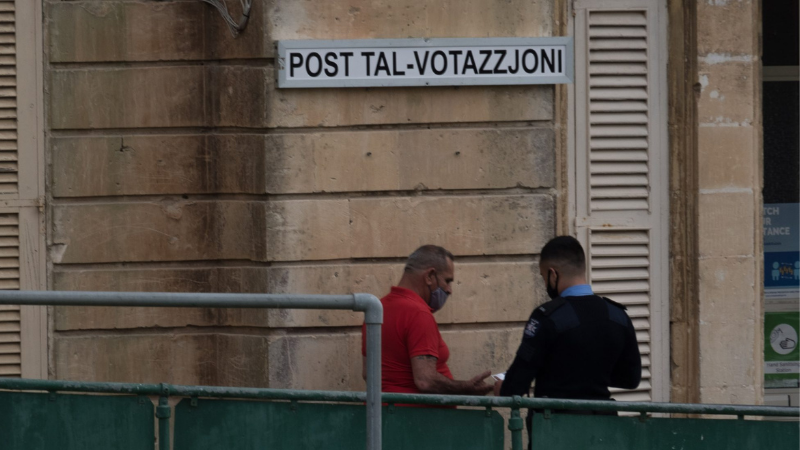One of the most striking aspects of Malta’s 2022 general elections was the ease with which politicians routinely stonewalled and ignored crucial questions from journalists seeking to hold them accountable.
In particular, newly sworn-in Prime Minister Robert Abela spent a significant chunk of the electoral campaign dismissing journalists’ questions as “spin” or otherwise providing responses that sought to divert attention away from stories linked with his own business dealings.
On 23 February, following The Times of Malta’s story about a property deal involving alleged criminal Christian Borg and Abela, in which the prime minister made an easy €45,000 profit, Abela dismissed the story as “spin”, insisting all taxes on the deal had been paid.
Abela then spent at least four days dodging journalists and press conferences altogether, only eventually reappearing in front of non-PL media at a party leaders’ debate organised by the University of Malta’s Debating Union on 10 March.
Abela rebuffed reporters’ questions on 14 March when pressed about the Planning Authority’s sanctioning of several illegalities on his sprawling villa in Żejtun, claiming that Opposition leader Bernard Grech had illegally built his own home in Għargħur.
Besides Abela’s avoidance of thorny questions, called out by Times of Malta journalist Ivan Martin when doorstepping the prime minister about how he spent more than two years in office without giving a single extended interview to the independent media, other key issues accompanied these general elections.
Even the fulcrum of the democratic process – the eve of the election and the day of voting itself – were accompanied by restrictions that were either selectively enforced or ignored.
While 25 and 26 March were supposed to be free of political propaganda according to Article 114 of Malta’s election laws, The Shift highlighted how digital advertising slots on Facebook and You Tube were still flooded with political ads.
On the day of the vote, journalists seeking to take pictures of people near voting booths were not allowed to do so within 50 metres of each voting station, a rule that was conveniently foregone when leaders of both major parties were extensively photographed placing their vote on the day. Phone calls within the same perimeter were also not permitted.
Another key aspect related to the coverage of the 2022 general elections was the failure of the public broadcaster to provide factual, objective reporting about the elections. An analysis of TVM’s news and social media platforms carried out by The Shift during the election showed that it under-reported or altogether ignored any stories that cast the prime minister, the government and the Labour Party in a bad light.
Dubious practices also raised questions about the integrity of the electoral process itself, highlighted in particular by the PN’s urgent constitutional case about dozens of prisoners who were allowed to vote despite the fact that they should have been struck off the electoral register.
While that case was dismissed by the constitutional court, questions remain about why non-communicative individuals in Mater Dei Hospital and Saint Vincent de Paule home for the elderly were taken to vote, even though they lacked basic cognitive awareness. There were several cases highlighted by relatives of the elderly voters in question.
Former active ageing minister Michael Farrugia, who was re-elected in the twelfth district, denied that this happened, insisting that psychiatrists, as well as members of the Electoral Commission, had assessed people in elderly homes, though he failed to provide any further detail.
The process was further complicated by disparities in the timeline of publication for the manifestos – while three parties had already made their manifestos available at the start of the electoral campaign, the Labour Party made theirs available on 11 March, just two weeks before the vote, limiting the opportunity for analysis and debate.














The magnetic attraction between mafia and handcuffs is so strong that, no matter how much they struggle, it can never weaken.
THE THOUSANDS WHO DID NOT CAST THEIR VOTE ARE SURE EVIDENCE
THAT THEY DISTRUST AND MISTRUST MALTA’S CORRUPT POLITICAL SYSTEM.
WELL DONE. NEVER, EVER, TRUST THE PEOPLE’S REPRESENTATIVES,
THEY WILL ALWAYS, UNFAILINGLY, DECEIVE YOU. ALWAYS KEEP DCG IN MIND.
And not voting keeps them there , prosit!